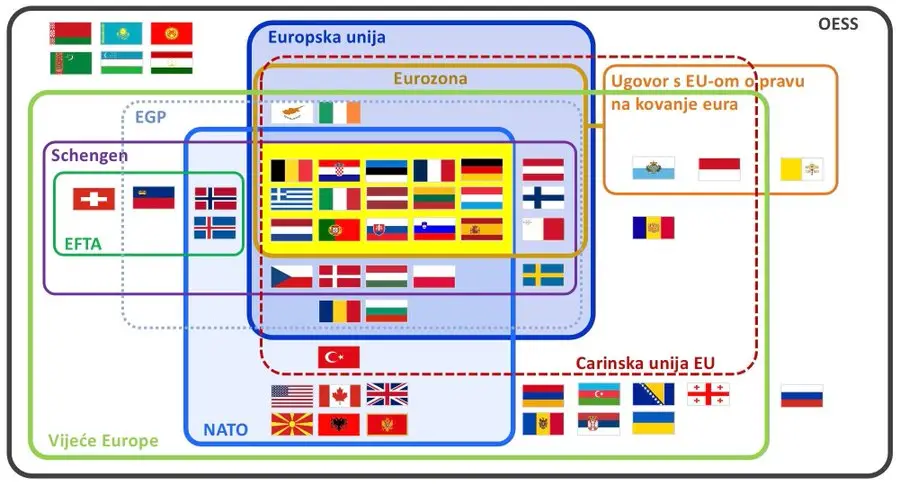Let’s not kid ourselves, G7 is not a realistic goal (and Croatia is already a member of the G20, through the somewhat complicated relationship of the EU with that international organisation). So, the only international organisation remaining where Croatia has applied for membership, but will not be a full member yet as of January 1st, 2023 is the OECD.
In early 2022 the 30th anniversary of Croatian United Nations membership was marked. During the years, almost all other international integrations the Croatians were hoping for happened, one at a time, with the biggest one happening in 2013, with the Croatian accession to the EU.
Last week’s news of the Croatian entry into the Schengen area, paired with the introduction of Euro in Croatia, both happening in weeks, marks the end of the aspirations for Croatia. As for the aforementioned OECD, the application was formally sent in January of 2022, and the official and unofficial sources estimate it will take 3-6 years to meet all of the requirements to join the 38-member Organisation for Economic Co-operation and Development. Croatian Exterior Ministry is in charge of those negotiations, which are not supposed to be easy, and it was reported earlier that Croatia was able to meet 39 out of the 260 legal “requirements”.
One of the Croatian Twitter members posted a helpful chart, showing Croatia’s position within the international integration in Europe, pointing out how Croatia is currently in the “inner circle” of all of the European countries, distancing itself even further from Bulgaria and Romania.
Od 2023. smo u najužem krugu eurointegracija. Do sada smo bili uz bok s Rumunjskom i Bugarskom. pic.twitter.com/7lwCxkcaq3
— Marko Božac (@markobozac) December 10, 2022
Some sceptics have, of course, taken the opportunity to point out that now, with (almost) all of the Croatian external goals taken care of, maybe the government could dedicate itself to solving some of the internal goals in the near future.











